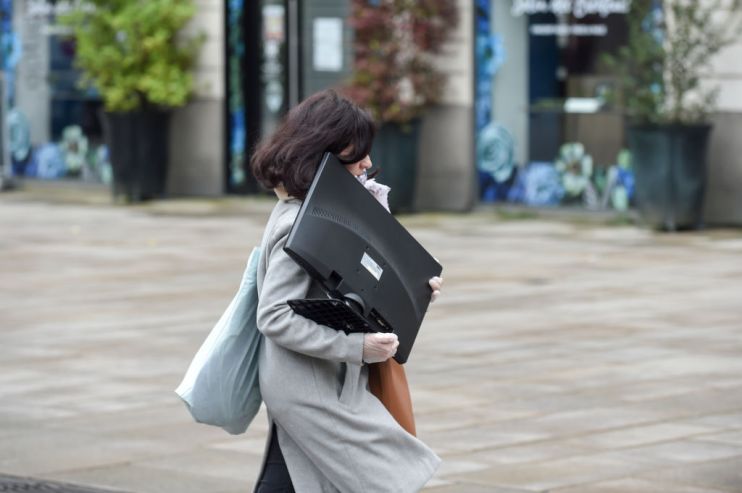Childcare, chores, and stereotypes: Breaking down the barriers to female entrepreneurship

The Covid-19 pandemic has wreaked havoc on our economy.
GDP has dropped by 20 per cent, and 7.5m people are out of work, with more job losses on the horizon. While business failure rates are currently low, as government support packages begin to be withdrawn we should expect to see more companies fold — and a lot of staff who were furloughed will find themselves completely out of work.
What, if anything, can be done to turn the tide?
Following the financial crisis, young firms were responsible for most of the new jobs created. So to help spur the Covid-19 recovery, it is vital that we support the creation of as many new businesses as possible, and encourage existing ones to reach the next level of growth.
That makes closing the UK’s business gender gap more crucial than ever before.
Prior to the pandemic, women in the UK were not founding businesses at the same rate as men. For every female entrepreneur there were two male entrepreneurs. This is not a uniquely British phenomenon, but the UK does lag behind other developed nations: the entrepreneurship gap here is bigger than in Spain, the Netherlands, the US, Canada, Israel, Australia, Sweden, and Greece.
If British women were founding businesses at similar levels to women in these countries, the UK economy would have been about £200bn bigger.
The pandemic has exacerbated the existing problem. To find out just how bad the impact has been, we at The Entrepreneurs Network crunched the figures. We focused specifically on high-growth, equity-backed businesses, because these companies will have an outsized role in the UK’s recovery, and published our findings in a new report out today, in conjunction with Barclays, entitled Resilience and Recovery.
The picture does not look rosy: on most measures, female-founded businesses have been impacted worse by coronavirus. From the get-go, they were more likely to experience severe disruption to their ability to operate (21 per cent versus 18 per cent). But as the situation in general got better, the gap got worse.
In April, female and male founded startups were equally likely to see the possible opportunities for growth from Covid-19 and lockdown (14 per cent). However, as the pandemic continued and the economy recovered a little, more and more male-founded companies found ways to grow (16 per cent), while the number of female-founded companies which were growing decreased (13 per cent).
To understand why female-led businesses seem to be struggling more, we need to look at a range of factors.
First, men and women tend to launch businesses in different sectors. The male-dominated science and technology sector is the most likely to have benefited from the coronavirus crisis, as our lives have suddenly become dependent on tech like never before and the race for medical advancement has been turbo-charged. This puts female-led businesses at a comparative disadvantage from the start.
But this isn’t the whole story. It’s not just about what sort of startups women are founding, but how much time they are able to devote to their businesses. Women, even women who outearn their husbands, take on a disproportionate amount of unpaid work in the home. According to one study, women spend on average 29 hours a week on housework, whereas men spend just 16. When the pandemic hit, children suddenly had to be home-schooled and childcare options evaporated. As domestic pressures during lockdown increased, it is likely that female entrepreneurs found it significantly harder to juggle their home and work commitments than their male counterparts.
Finally, female founders are repeatedly held back because they are less likely to receive equity funding.
Fortunately, there are solutions to these problems. There are already a wealth of initiatives focused on the funding gap, which have increased the amounts female founders receive in equity finance. In 2011, female entrepreneurs raised only £79m, but by 2015 this had increased tenfold to £795m, and in 2019 it was £1.78bn.
Culture around housework is a harder challenge to tackle, but it is changing — the same study that found the 13 hour housework gap also noted that men were increasingly doing more around the house compared to the mid-1970s. As gender expectations continue to evolve, we expect that the next generation of entrepreneur mothers will close the chore gap too.
In the meantime, after a rocky initial period the Covid-spurred shift towards flexible and remote working could have a positive impact, making it easier for women to juggle childcare with their careers — and for men to take on their share too.
As for the sector difference, while women should be encouraged to start businesses in any field they feel passionate about, we have seen renewed focus on closing the gender STEM gap in recent years. Schools, universities, businesses and charities are increasingly taking steps to broadcast the message that girls can be just as good at science as boys can, and that the narrow stereotype of the male scientist or tech genius is misleading and outdated. In time, this too should yield results.
Ultimately, despite problems both highlighted and exacerbated by Covid-19, there is some cause for optimism. Having tasted freedom, there is hope that many women who shifted to more flexible work over lockdown will now consider launching their own businesses, while those who have weathered the crisis can lead as role models. Do not be surprised if much of the new jobs and growth over the next few years to come from innovative and entrepreneurial women.
But as we chart our economy through such choppy and uncertain waters, we cannot afford to be complacent. The barriers to female entrepreneurship are real. If we can continue to break them down, we will reap the benefits in more jobs and a stronger, more dynamic economy.
Main image credit: Getty
